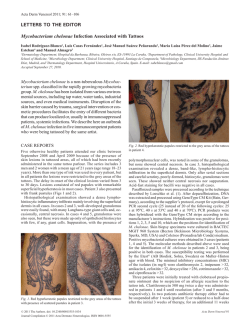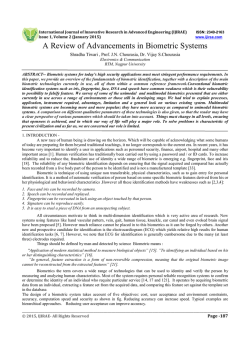
Download our current Newsletter here
Kelvale Medical Group 53 Railway Avenue Kelmscott WA 6111 Tel 9495 1230 Fax 9495 1641 Website: www.kelvale.com.au FEBRUARY-MARCH 2015 Your next appointment: Practice doctors Surgery Hours Dr Kandiah Sritharan Dr Peter Lim Monday to Friday...............................7.00 am to 7.30 pm Saturday............................................8.30 am to 2.00 pm Sunday & Public Holidays..................9.00 am to 11.00 am For Emergency After Hours phone advice ring: 0417 924 576 Circumcisions, Minor Surgery Afterhours & Emergency Dr Stuart Burton This Practice Supports GP Afterhours Armadale Weekdays..........................................7pm – 10pm Weekends & Public Holidays..............2pm – 9pm Tel: 9391 2285 MBBS, LRCP, MRCS, DA, DRCOG Aged Care, Family Medicine MBBS MBBS(WA), DipRACOG, FRACGP Anaesthetics, Palliative Care Dr Adrian Jameson MBBS(WA), DA(U.K.), DipRACOG, Anaesthetics, Colposcopy, Obstetrics Swimmer’s Ear (otitis externa) Dr Colin Stevens MBBS(WA), FRCS(Ed) Family Medicine, Vasectomy, Skin Cancer Surgery Dr Ted Collinson MA, MB, BChir(Cantab), MRCGP, DRCOG, FRACGP Aged Care, Minor Surgery, Sport’s Medicine Dr Jane Potter BSc, MBBS, MRCGP, DCH, FRACGP Pet Infections Children & Women’s Health Dr Leif Thonell MBBCh, D.T.M.H. M.Fam. Med. DA., FRACGP Men’s Health, Anaesthetics, Tropical Medicine Family Medicine PRESCRIPTIONS & OTHER TELEPHONE SERVICES Chronic Disease Management Prescriptions can be ordered by phone. Please allow 3 days, and there will be a fee of $10.00. Our Practice Nurse can advise on simple matters or tell you if a matter requires an appointment with the Doctor. Family Medicine, Women’s Health Dr Fatin Wajdi MBChB, MRCP(UK), FRACGP Female Arabic Speaking, Family Medicine MBBS, FRACGP Primary Health Nurses: Maryke, Wendy & Sam TAKE ME HOME! Enjoy this free newsletter Please remember that decisions about medical care should be made in consultation with your health care provider so discuss with your doctor before acting on any of the information. www.healthnews.net.au BILLING ARRANGEMENTS Dr Deby Rori MBBCh, FRACGP Managing Sun Damaged Skin • Audiometry • Diving Medicals • Aviation Medicals • Heart Traces • Epidural Service • Employment Medicals • Pregnancy Care & Deliveries • Vasectomy • Travel Advice • Immunisations • Colposcopy • Home Visits • Palliative Care • Pathology • Wound Dressings • Veterans’ Medical Problems • Podiatry • Lung Function Tests • Mental Health • Hospital Care at Armadale or Galliers Private Hospital This practice does not bulk bill routinely. This practice bulk bills Aged Pensioners & Childhood immunisations at certain times. Fees for common services are displayed on the board at accounts. Due to the complexity special fees are payable for Maternity, Insurance and some other procedures. Cash payment is preferred at the time of the consultation; credit card or EFTPOS facilities are available. Dr Michelle Skellern Domestic Abuse Other services offered Practice STAFF Practice Manager: Jackie Lewis Clinical & Admin Manager: Tina Pollock Nursing Staff: Fiona, Heather, Sam, Shelley & Bindu Reception Supervisor: Matilda Wagennar Reception Staff: Heather, Liz, Sylvia, Monique, Paula, Sue, Kerrie, Marysia, Jennifer, Gemma & Tammy Nursing Home Liaison: Jeni APPOINTMENTS Online appointment now available – Book in with any doctor of your choice. Just go to www.kelvale.com.au or use your smart phone Appointuit App. Appointments are made at 10 minute intervals. Longer consultations can be requested. You may be asked to make longer times for Insurance, Diving and other medicals and for Counselling. Please advise the reception staff if the consultation is related to a Work Place injury. Please see the Rear Cover for more practice information. Hepatitis C Facts An estimated 233,000 people live with Hepatitis C in Australia and the good news is that new cases appear to be on a small decline. The virus is spread through unsafe contact with blood products. In 2011, 60% of new cases were related to unsafe injecting drug use. Other causes were unsterile tattooing or body piercing, needle stick injuries or other blood to blood contact. Hepatitis C virus can cause a chronic active infection in the liver with only vague symptoms such as fatigue. Symptoms can take years to develop. Complications from hepatitis C infection include cirrhosis (liver scarring), liver cancer and liver failure. Cirrhosis happens in up to 20% of cases. Swimmer’s Ear (otitis externa) The outer ear is a canal or tunnel, normally closed at the eardrum and open at the ear hole (see diagram). The skin lining the outer ear can become infected, causing redness, swelling and pain. This is otitis externa. If moisture gets trapped in the canal, infection occurs more easily – by bacteria, fungi or both. We know that infection happens more often in water lovers (‘swimmer’s ear’), when there is sweating and/or high humidity (‘tropical ear’), if the skin lining of the external ear canal is affected by dermatitis or eczema, or soap or shampoo isn’t properly rinsed from the ear. Other symptoms of infection can include discharge from the ear, itching and sometimes reduced hearing. It is particularly painful if you pull down on the ear. Swelling of the face around the ear means infection has spread to the surrounding skin. Hepatitis C is the leading reason behind liver transplantation in Australia. With newer treatments a 75% cure rate for Hepatitis C is possible. Needle and syringe exchange programs have helped confine the spread of the virus. With no Hepatitis C vaccine, those with chronic hepatitis C may benefit from immunisation against hepatitis A and B. Those who ‘injected’ in their ‘misspent youth’ should have a test for chronic active hepatitis which can quietly lead to liver failure. www.hepatitisaustralia.com/ Pet Infections Australians have one of the highest pet ownership rates in the world. Pets provide much joy and there are many health benefits associated with pet ownership, including better mental health and lower rates of high blood pressure and heart disease (especially in dog owners). However, pets can also be the source of infections. Superficial wounds can be managed with cleaning and local antiseptic. Deeper or larger wounds may need a course of antibiotics as deep spread of infection can be painfully damaging. wick coated with the antibiotic and antifungal cream. If infection returns often you may need to see an ENT specialist. Tips for preventing otitis externa: • Avoid getting water in your ear and if water enters, shake it out. Your doctor must first make sure the eardrum does not have a hole in it. • Regular swimmers should Most cases of otitis externa are mild consider using drying drops (from and respond quickly to antibiotic pharmacies) afterwards. eardrops and painkillers. There are • Use moulded earplugs or a bathing/ ways to keep the ear dry that you can shower cap when swimming or discuss with your doctor. showering. Occasionally, to clear up infection, • Do not clean with cotton buds—the your doctor will need to clean the ear ear usually cleans itself naturally. canal by washing it out or cleaning • If you have symptoms of infection with a fine probe or suction, or see your doctor. perhaps carefully insert a cotton All people at risk (ask your doctor) can be screened for the virus with a simple blood test. The main way this happens is if you are bitten or scratched by a pet. Dog bites can easily be infected because there are so many bugs in the mouth. See your GP if you are concerned. Bites are commonest in young boys, most often from pets than stray dogs. Cat bites are commonest in older women and most often on the hand. Site of ‘otitis externa’ In rare cases, if the tendon or muscles are involved, then referral to a hospital may be needed. Other infections that may be transmitted by pets are worms. This affects children most often and is generally easily treated with worm medicine from the chemist. Fungal skin infections such as ringworm can also be caught from pets. This can be treated with an antifungal cream. After you have handled a pet make sure you wash your hands. This minimizes the chances of getting an infection. www.australianprescriber.com/magazine/29/1/6/8/ Domestic Abuse Around 95% of domestic assaults are men against women. It can take many forms, including physical violence, sexual abuse, emotional abuse, intimidation, economic deprivation or threats of violence. Abusing men tend to hold rigid views of how males and females should interact; that men have the right to dominate and control relationships. Despite cultural differences, this is slowly changing, rather than support the view that “real men” show strength and aggression. A high percentage of abusers come from homes where they saw or were victims of physical, sexual or other abuse themselves. Hence breaking the cycle of domestic violence between generations is very important. Attitudes can get passed down so that men who were abused are six times more likely to become abusers themselves. Sadly many women feel trapped in violent relationships. They stay there, silent, for different reasons—financial insecurity, to keep a roof over their children’s head, a hope they can change their man for the better, fear of reprisal and lack of support. www.1800respect.org.au/ We know that domestic violence is unacceptable. Community awareness programs have helped so that women in violent relationships seek help from the many services, such as helplines. Once domestic violence is in the open, effective policing with priority response is available. Anger management programs can be offered to offenders (even by the courts, as an alternative to jail). Of course, for these programs to work and people to stay together, there must be desire to change. Hopefully, stronger women will encourage their men to face their shame, take responsibility for their behaviour, and stop destroying family relationships. The domestic violence helpline 1800RESPECT (1800 737 732). Interpreter services are available as well on 131 450. Head Lice Managing Sun Damaged Skin Australians generally enjoy the great outdoors. But skin sun damage is a problem leading to the highest rates of skin cancer in the world. A step before some skin cancers is solar keratoses, commonly known as ‘sunspots’, areas of redness and roughness in sun damaged skin. Due to the potential for cancerous change, solar keratoses are usually treated. The commonest treatment is cryotherapy, better known as freezing. This is applying liquid nitrogen (or dry ice) on the area in a “freeze thaw” sequence. It can cause redness and some loss of pigment. It is usually successful, and most people have no complications. It can be used on most keratoses and is particularly good for scattered individual spots. There are also creams that treat solar keratosis, available on prescription. Which one, and the duration of treatment depend on the individual case. They are most suited to areas on the skin where there are multiple spots. Salicylic acid applied topically can reduce roughness and retinoid creams can help with skin rejuvenation. Laser resurfacing and photodynamic (light) therapy are newer options but are less widely available and are more expensive. The key remains prevention. As you enjoy the summer sun, remember to always slip on a shirt, slap on a hat and slop on sunscreen. See your doctor about any skin spots of concern and ask your doctor about an annual skin check, particularly if skin cancer runs in your family. Common in school age children but potentially affecting anyone, lice are annoying but not serious. The head louse is a tiny wingless insect. It can only live on humans (lice die within 24 hours if not on the body) and feeds on miniscule amounts of blood drawn from the scalp. They cannot jump or fly but only crawl – hence spread is by direct hair to hair contact. The typical symptom is an itchy scalp. A note from school saying head lice have been found and requesting all parents to check the hair of their children will often first alert parents. Adult lice are grey or tan insects the size of a sesame seed on the scalp. Nits (lice eggs) are tiny white or brown dots usually attached to hair near the scalp. They can look like dandruff but cannot be “shaken” off. To find them, comb hair with any conditioner and then comb with a fine tooth comb. Wipe the conditioner from the comb onto a paper towel. Look for eggs or lice. Do this through all the hair a few times. Treatment is to remove lice and nits from the hair. You can use the conditioner method (described above) every other day till none have been found for ten days. There are also specific head lice treatments (both synthetic and organic) that can be used. Follow the directions on the pack. Wash the pillowcase in hot (60C) water. Family members need only be treated if lice or nits are found on them. http://health.vic.gov.au/headlice/ Kids Kelvale Medical Group ●Special practice notes activity! LAUGHTER the Best Medicine n Why does Snoop Dogg carry an umbrella? FO DRIZZLE! n Why can’t you hear a pterodactyl in the bathroom? Because it has a silent pee. n What did the Zen Buddist say to the hotdog vendor? Make me one with everything. n I never make mistakes…I thought I did once; but I was wrong. Thought Provokers... • What steps do you take to prevent ‘swimmer’s ear’? • Solar keratosis in sun damaged skin can lead to what? • Animal bites can quickly infect deeper tissue. Why? • An abusive relationship isn’t necessarily violent. SWEET POTATO, CORN & ZUCCHINI SLICE INGREDIENTS 350g coarsely grated sweet potato 300g grated zucchini (moisture removed) 125g tin sweet corn (drained) 2-3 cloves crushed garlic 1 large finely chopped brown onion or 2 medium onions 2 tblspns chopped fresh parsley 2 tblspns chopped fresh chives 2 tspns olive oil 4 eggs 2 egg whites ½ cup plain flour ½ cup fresh ricotta Season with salt and pepper if desired Slice tomatoes and arrange on top of slice. METHOD Preheat oven to 180°. Grease lamington tin. Heat the oil and add onion and sweet potato and cook until soft. Stir in garlic and cook for approx 1 minute. Whisk eggs, egg whites and flour until smooth. Add ricotta. Stir in onion, sweet potato, zucchini, corn, chives & parsley. Pour into tin and bake for approx 30 minutes or A great school or work lunch box idea! Patient Feedback. We welcome your comments or suggestions. Please feel free to talk to your GP or the Practice Manager regarding any issues. If you prefer, you can contact the Health and Disability Services Complaints Office (HaDSCO) on 1800 813 583 (Free Call). Despite our best intentions, we sometimes run late! This is because someone has needed unexpected urgent attention. Thank you for your consideration. Communication. A doctor is available during normal surgery hours for emergency advice. Our staff are experienced in deciding the appropriate response to any phone request. Patient Privacy. This practice protects your personal health information to ensure it is only available to authorised staff members for the intended purposes and to comply with the Privacy Act. To obtain a copy of our Privacy Statement or your medical records, please ask. Reminder system. Because our practice is committed to preventive care, we may send you an occasional reminder regarding health services appropriate to your care. If you wish to opt out of this, please let us know. Test Results. Results are reviewed by the doctors and acted on in a timely manner, with your health in mind. We will contact you if necessary. Baby Safety Tips until golden brown and cooked through. Slice tomatoes and arrange on top of slice. Remove from oven and allow to sit to set. Delicious served warm with a cherry tomato & Rocket salad. SIDS: put your baby to sleep on its back and use light cotton blankets; don’t overwrap your baby or use pillows; and avoid smoking near the baby. Immunisations: many serious childhood diseases are preventable so check that your child is up to date with their vaccinations. Accidents: There are simple things you can do to make your house safe before baby starts crawling.
© Copyright 2026


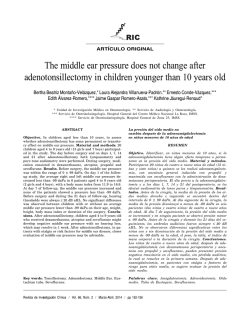
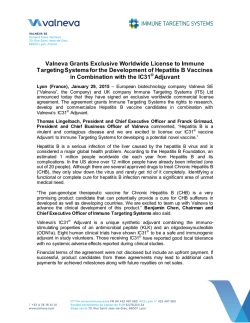
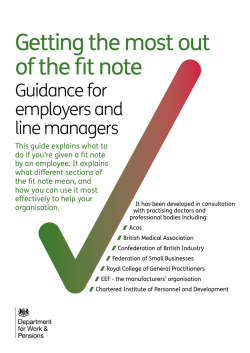
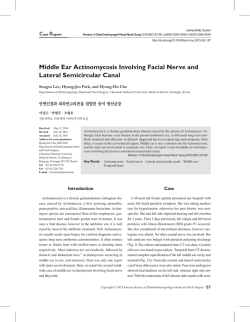
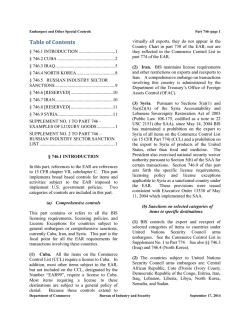
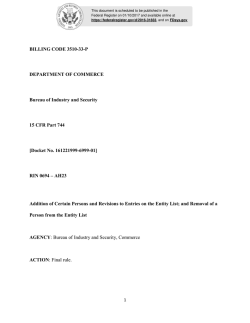
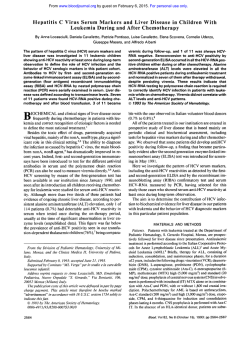
![Download [ PDF ] - journal of evolution of medical and dental sciences](http://s2.esdocs.com/store/data/000494682_1-a05d094f9efefa40e28645027f3e090c-250x500.png)
